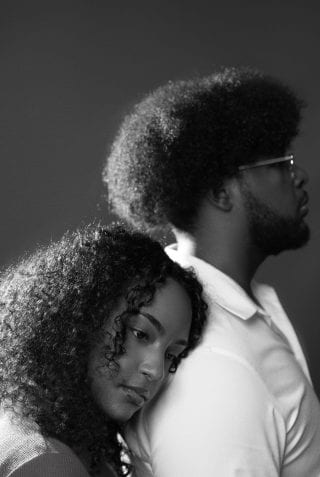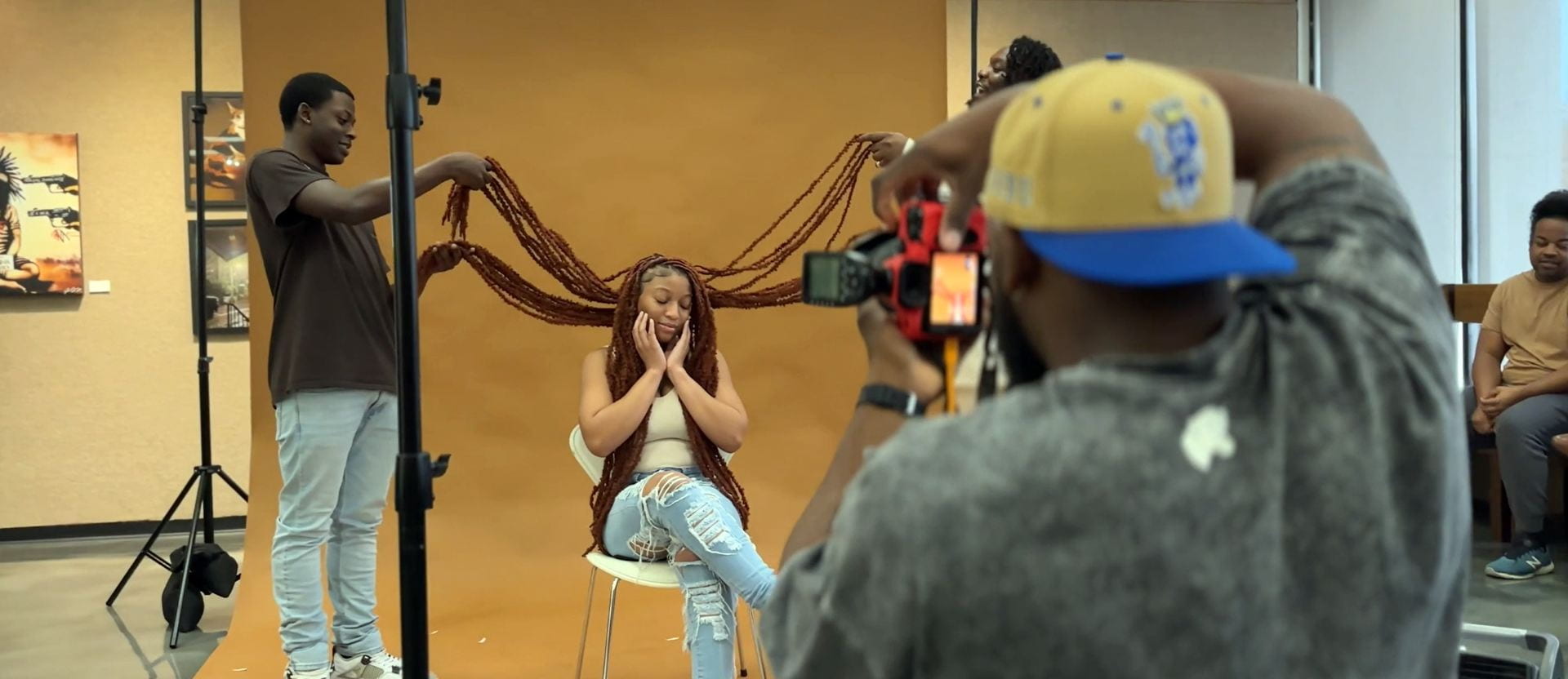
The Division of Student Affairs helped the University celebrate Black History Month in February with a range of events, from The Multicultural Center’s First Friday celebrating Silas Hunt, an art exhibit showcasing Black hair, to the Distinguished Lectures Committee’s moderated Q&A with Dr. Bernice King.
Black History Month, or National African American History Month, is an annual celebration in February of the accolades, achievements, and successes of Black/African Americans. It also provides us a time to honor and recognize the central and significant role that African Americans have and continue to play in U.S. history.
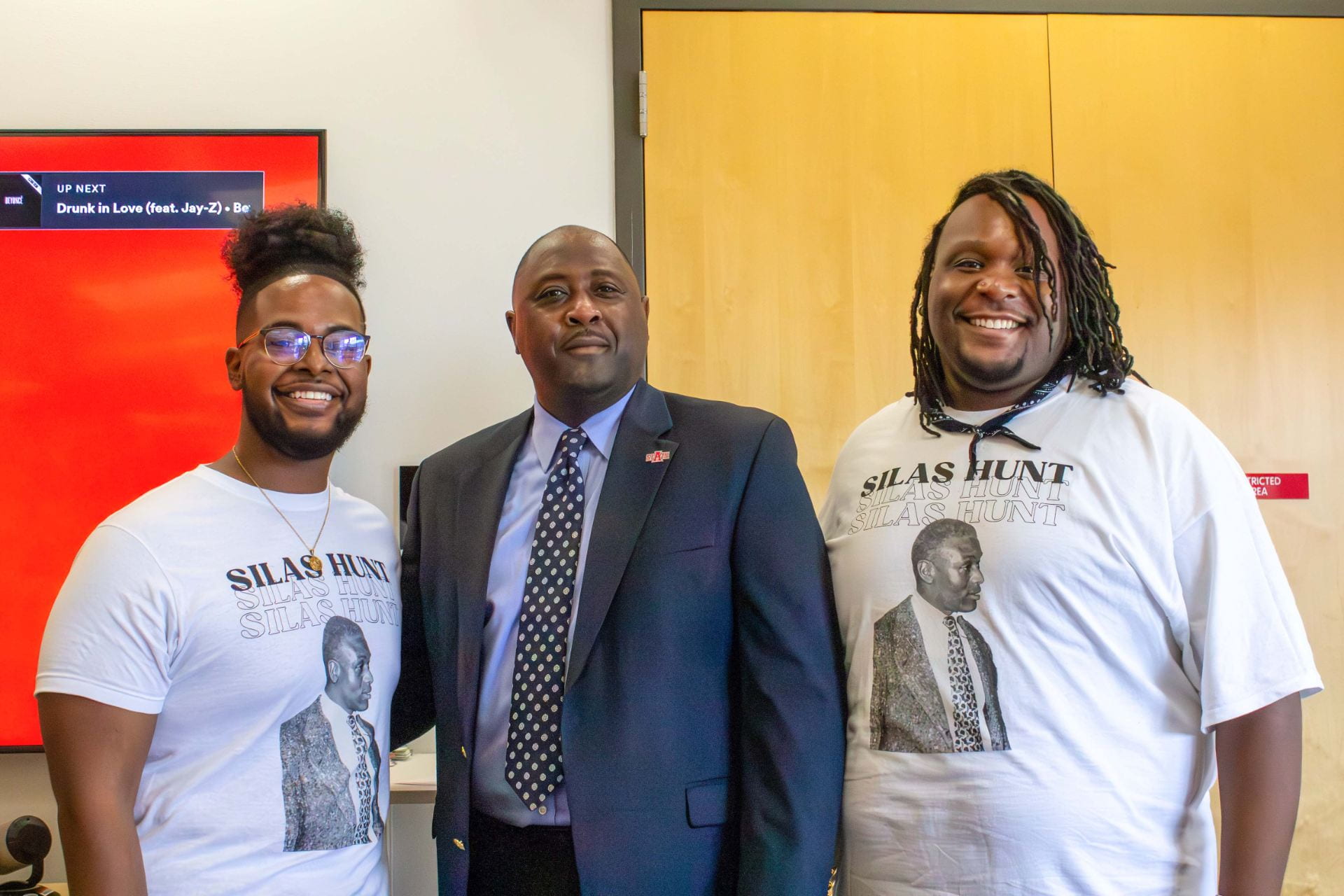
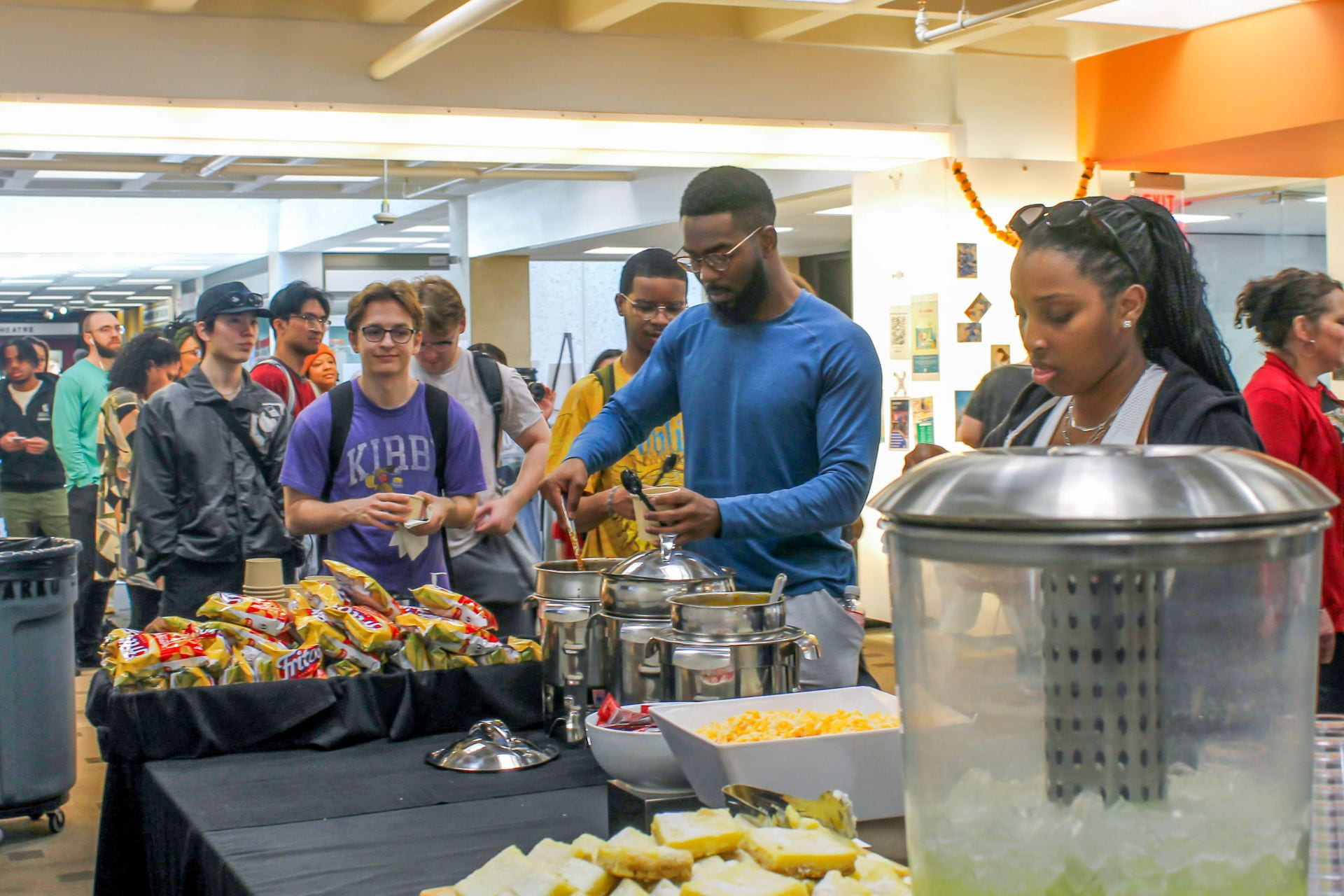
First Friday at The MC
The Multicultural Center hosts First Friday events each month, but the event on Friday, Feb. 2 was extra special because it was Silas Hunt Day in the state of Arkansas. Governor Mike Beebe, a graduate of the University of Arkansas School of Law, declared Feb. 2 as Silas Herbert Hunt Day back in 2007.
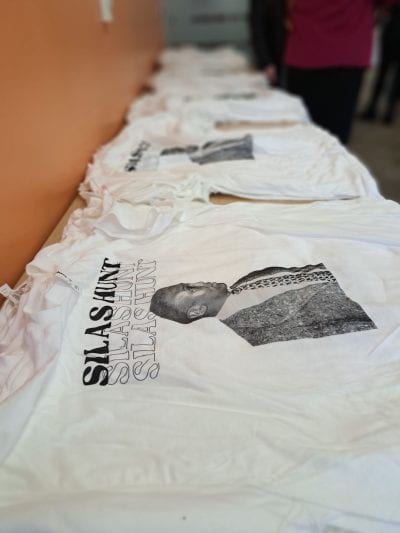 Hunt was the first of the Six Pioneers involved in the integration of higher education in Arkansas and the South. On Feb. 2, 1948, he enrolled at the University of Arkansas School of Law, thus becoming the first African American student admitted to the university since Reconstruction and the first black student to be admitted for graduate or professional studies at any all-white university in the former Confederacy.
Hunt was the first of the Six Pioneers involved in the integration of higher education in Arkansas and the South. On Feb. 2, 1948, he enrolled at the University of Arkansas School of Law, thus becoming the first African American student admitted to the university since Reconstruction and the first black student to be admitted for graduate or professional studies at any all-white university in the former Confederacy.
The MC celebrated Hunt’s legacy at their First Friday event and had t-shirts made up with Hunt’s name and photo. The event was co-hosted by Office of Admissions, The Law School, Black Grad Students Association and Black Law Students Association.
“We had almost 200 people show up for First Friday,” said Izzo Ahmed, cultural programming coordinator The MC. “We had good food and we had a lot of shirts with Silas Hunt on them. We gave them all out. Those shirts went fast!”
Several Registered Student Organizations set up tables at the event outside of The MC and shared information about their organizations and handed out swag, including the BGA and the BLSA.
“I had a lot of students come up to me and say that event inspired them,” Ahmed said.
Much of that inspiration came from Dr. Calvin White Jr., provost and executive vice chancellor at Arkansas State, who spoke at the event. White was formerly the senior associate dean in the Fulbright College of Arts and Sciences at the U of A.
According to AnReckez Daniels, assistant director of The MC, White asked students gathered in The MC classroom – “What are you doing to make an imperfect place better?”
“I think he resonated so well with the students because he was just familiar and warm,” Daniels said of White. “It was that feeling of knowing that someone is coming from a genuine place and reels you in.”
Blue Magic: Illuminating Black Hair at the University of Arkansas
Blue Magic is a photo portrait gallery featuring current University of Arkansas students, staff, and faculty, and celebrates Black excellence on the U of A campus. The Exhibit, in the Anne Kittrell Gallery in the Arkansas Union, featured more than 90 portraits, captured by photographers, U of A Alumni Nik Harper (@niftywitha50) and LaQuan Williams (@Qphotography).
The emphasis of the photos in the exhibit, under the creative direction of Daniels, is on the hair of the Black subjects.
“The title of the exhibit Blue Magic is a direct reference to a product that black people have used to protect our hair,” Daniels said. “Enslaved people used grease to protect hair and Blue Magic is an iconic product in black households.”
“Throughout black history hair has been a form of expression,” Ahmed said. “With different styles, from afros to braids to dreadlocks, it has been the way for black people to express themselves. I had a photo taken of me and my sister, who is a student here. It was nice showing my hair but doing it with my sister was great!”
Dallas Black Dance Theater
Dallas Black Dance Theatre: Encore! performed at the Faulkner Performing Arts Center on February 15. The group represents the next generation of Dallas Black Dance Theatre with dance performances of the highest level of artistic quality and relentless excellence.
Founded in 2000 by Ann Williams, DBDT: Encore! is the professional training company for Dallas Black Dance Theatre, consisting of eight classically trained and highly skilled dancers from around the nation to keep up with demand and continue to serve its local community.
“The performance was amazing. We had more than 300 people show up,” Ahmed said “It was my first ballet performance. I’d love to see them in Dallas. The last act was my favorite it was a black history timeline set to dance from slavery to modern day. The way they showed black history through ballet was captivating.”
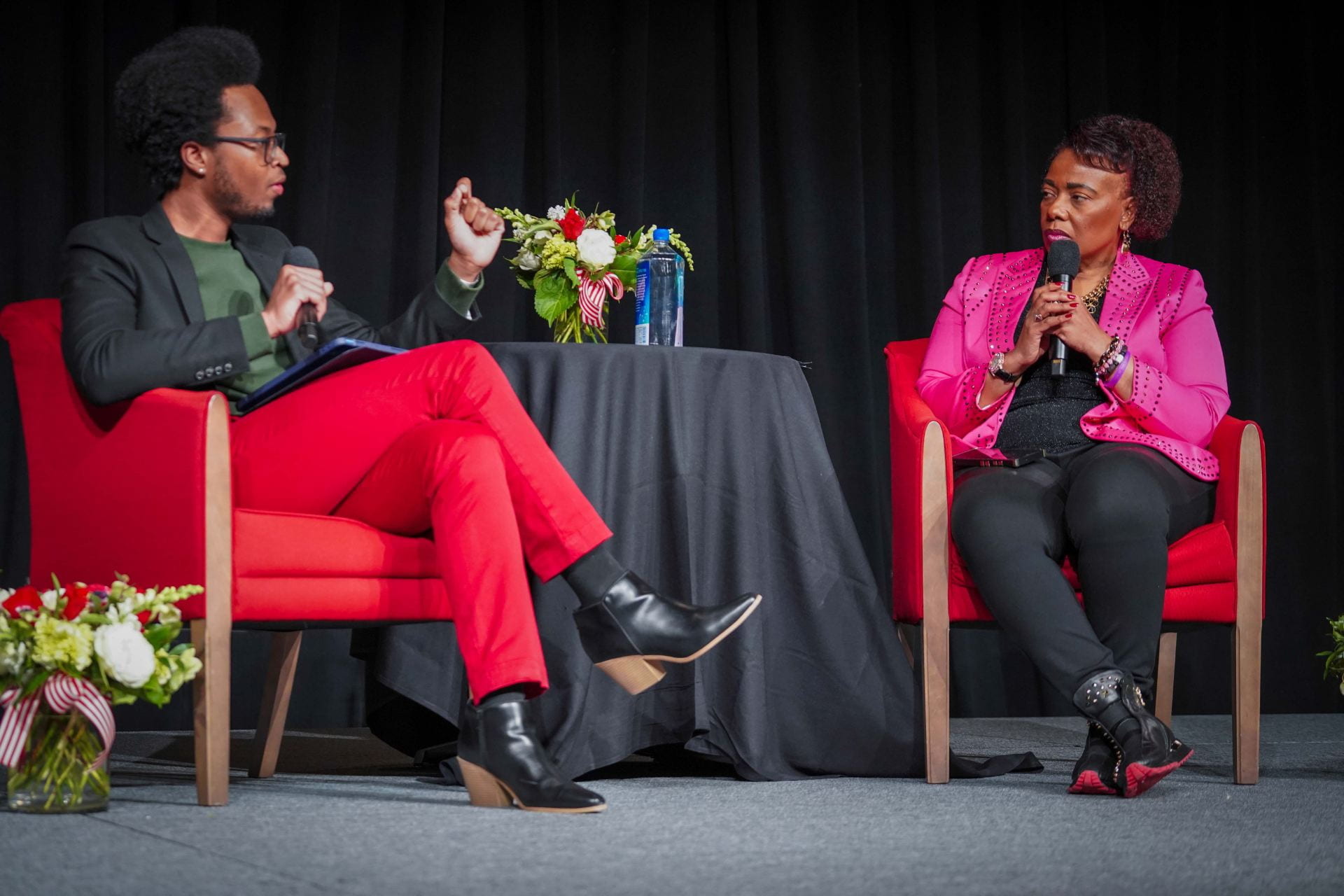
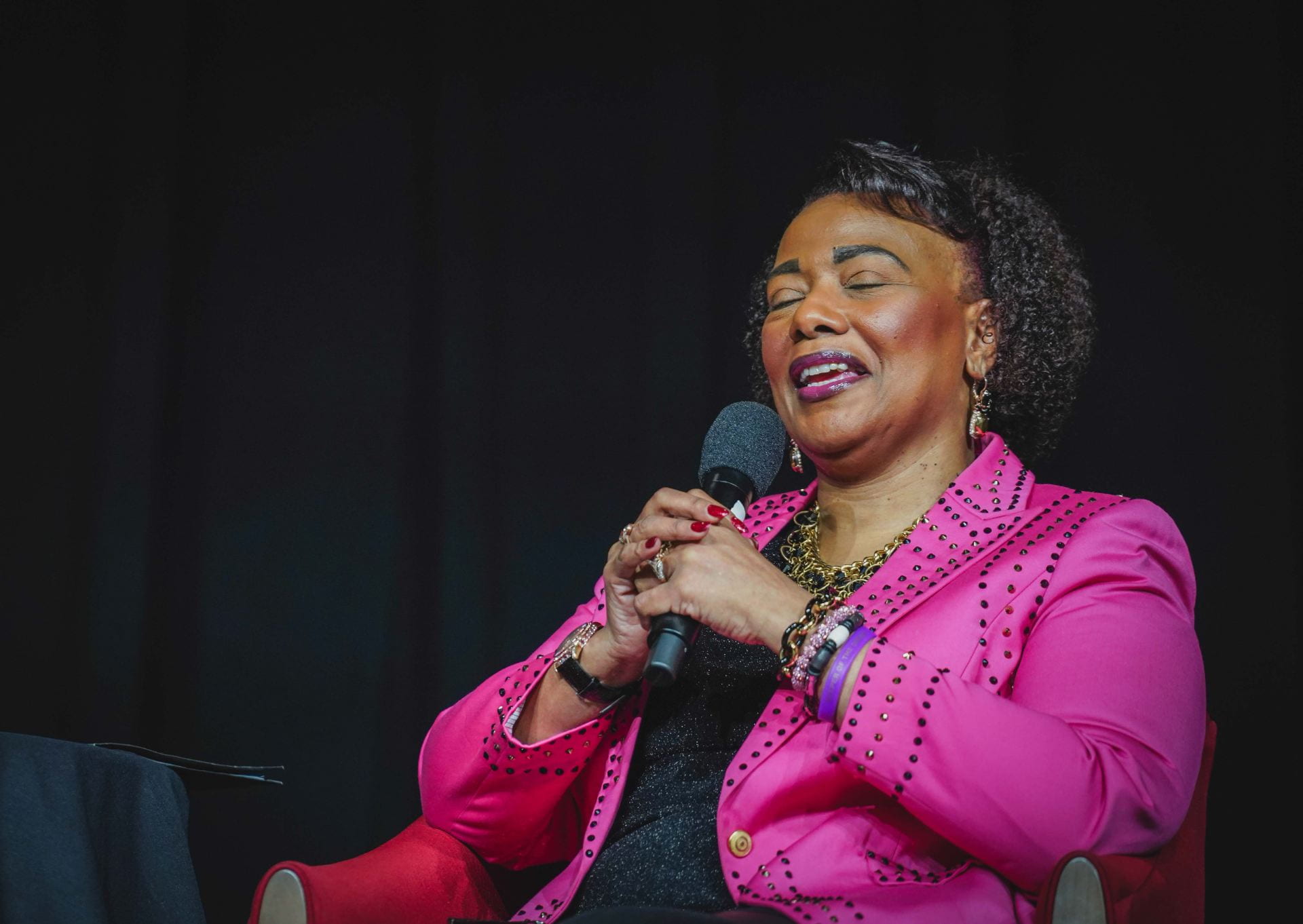
Dr. Bernice A. King Lecture
Dr. Bernice A. King, global thought leader, strategist, solutionist, orator, peace advocate, and CEO delivered a moderated question and answer session as part of the Distinguished Lectures Committee’s series on Feb. 28 at the Fayetteville Town Center.
King is the youngest daughter of the late civil rights leaders Martin Luther King Jr. and Coretta Scott King. An ordained minister, King holds a degree in psychology from Spelman College, as well as a Master of Divinity and Juris Doctor from Emory University. She is the author of Hard Questions, Hard Answers and the children’s book It Starts With Me.
King was presented with a welcome letter sent on behalf of Arkansas Governor, Sarah Huckabee Sanders. Following the reading of a letter, the evenings student moderator, Bryson Austin opened the conversation with a direct statement about the hollow actions and words of people claiming to be allies and asking King, “How do you feel about the ‘whitewashing’ of your father’s legacy and what do you want the people that would give you accolades but then not put the work in behind it, to do?”
King responded in an inviting yet commanding tone. “My father is gravely misunderstood by so many people,” she said, “it’s not just a white thing, It’s an all-people thing. There are many people who use my father for their own agenda, and they find the pieces and parts that work for them whether that’s a campaign platform or a protest platform.”
The conversation would go on to discuss the structure and hypocrisies of today’s school system. “We do live in a very diverse society, and we have to find a way be inclusive in the way we educate all of our children,” King said, “Black History isn’t just for the black community, the TRUE history of America is for all of us. What comes between people is a lack of knowledge and understanding.”
The discussion continued with the need to not stray away from the dark side of history but simultaneously celebrate the accomplishments of the black community. King went on to talk about how propaganda and the media keep us divided as a society.
“I think the best way to dispel myths and the division of polarization is old fashion crossing the line to engage each other as human beings,” she said. “We gotta cross these lines to understand each other. We have to start it and we have to continue it.”
Shane White contributed to this story.

